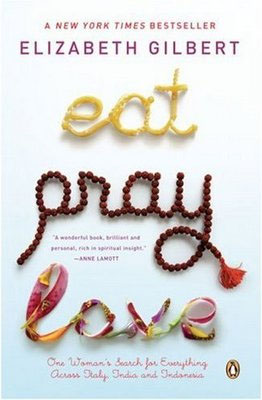
August 22nd, 2010 by Toni Brayer, M.D. in Better Health Network, Health Tips, News, Research
Tags: British Medical Journal, Cesarean Section, Early Pregnancy Loss, Family Medicine, Family Planning, Getting Pregnancy, Induced Labor, Low Birth Weight, Miscarriage, Obstetrics And Gynecology, Pregnancy and Childbirth, Pregnant Women, Preterm Delivery, Primary Care, Reproductive Health, Reproductive Outcomes, Women's Health
No Comments »

About 15 to 20 percent of women who know they are pregnant will have a miscarriage. The loss of a pregnancy before 20 weeks is considered a miscarriage. Many women suffer grief and shock after a miscarriage and fear there is something wrong with them or that they did something to cause it. But the reasons for miscarriage are usually not known. Women are often told to wait “a few months” to get pregnant again to let their bodies recover.
A new study published in the British Medical Journal looked at over 30,000 women who had a miscarriage in their first recorded pregnancy and subsequently became pregnant again. They found that women who conceived again within six months were less likely to have another miscarriage or problem pregnancy. They were even less likely to have a cesarean section, preterm delivery or infant of low birth weight. These women were more likely to have an induced labor.
The researchers wrote: “Women wanting to become pregnant soon after a miscarriage should not be discouraged.” These women had the best reproductive outcomes.
*This blog post was originally published at EverythingHealth*
August 21st, 2010 by John Mandrola, M.D. in Better Health Network, Health Tips, News, Opinion, Research
Tags: "Biologic" Heart, "Spiritual" Heart, A "Good" Heart, Agreeableness, Altruism, Antagonistic Personality Traits, Artery Wall, CardioBrief, Cardiology, Cardiovascular Health, Cardiovascular Risk, Carotid Artery Thickness, Compliance, Endothelium, General Medicine, Heart and Soul, Heart Attack, High Blood Pressure, High Cholesterol, Internal Medicine, Italy, Larry Husten, Modesty, National Institutes of Health, NIH, Primary Care, Psychology, smoking, Straightforwardness, Stroke, Tender-Mindedness
No Comments »

I saw a prescient story that linked antagonistic personality traits and cardiovascular risk. It was simply impossible to ignore. Low hanging fruit, no doubt.
The article highlights an NIH-sponsored study [published in the August 16th journal Hypertension] that looked at the effects of antagonistic traits — agreeableness, per se — on heart health. Yes, you read it right — agreeableness. To quantify agreeableness, the researchers used a personality questionnaire which included six traits: Trust, straightforwardness, altruism, compliance, modesty, and my favorite…tender-mindedness.
Your hypothesis is probably right: People who were distrustful, cynical, manipulative, self-centered, and quick to express anger fared worse. But please don’t dismiss this as just another mundane study proclaiming the risks of an angry personality. The specifics of the findings and their implications really hit hard. Read more »
*This blog post was originally published at Dr John M*
August 21st, 2010 by Davis Liu, M.D. in Better Health Network, Health Tips, News, Opinion, Research
Tags: Allure of Technology, Brain Activity, Brain Function, Charity Work, Dr. Frank Ryan, Driver Safety, General Medicine, Insurance Institute for Highway Safety, Motor Vehicle Accidents, Motor Vehicle Safety, Multi-tasking, Primary Care, Public Safety, Safe Cars, Safe Cellphone Use, Text Messaging, Texting While Driving
No Comments »

I’ll be honest — I’d never heard of Dr. Frank Ryan, a Hollywood plastic surgeon, until his tragic motor vehicle accident recently. Clients included actress Heidi Montag and boxer Oscar De La Hoya.
Although the California Highway Patrol investigation isn’t complete, rumors have suggested that Dr. Ryan may have been text messaging when driving. If this is true and an intelligent, well-trained doctor can fall prey to the allure of technology, then what does it mean for the rest of us?
First, realize that we can’t multitask. You have one brain. You can focus at one task at a time. Though laws allow hands-free cellphone calls, the issue isn’t trying to dial the phone but rather that the mind is engaged in the conversation and not on the road. Yes, we are all increasingly busy, but we can’t multitask. In fact, researchers have found that it takes more time and effort to refocus when we are distracted from one task to the other. Read more »
*This blog post was originally published at Saving Money and Surviving the Healthcare Crisis*
August 21st, 2010 by Peggy Polaneczky, M.D. in Better Health Network, Book Reviews, Health Tips, Humor, Opinion, True Stories
Tags: Antibiotics, Bladder Infection, Eat Pray Love, Elizabeth Gilbert, General Medicine, Gynecology, Health Tips for Travelers, Honeymoon Cystitis, International Travel, Macrodantin, Post-Coital Cystitis, Primary Care, Reproductive Health, Safe Sex, Sexual Activity, Sexual Health, SMTP, Sulfamethoxazole with Trimethoprim, Travel Habits, Urinary Tract Infection, Urology, UTI, Women's Health
No Comments »

 I really didn’t expect to like Eat, Pray, Love. In fact, since its publication in 2006, I’d been avoiding it like the plague. “Typical new-agey, Oprah-y, girly-book,” I thought. Nothing in it to speak to me.
I really didn’t expect to like Eat, Pray, Love. In fact, since its publication in 2006, I’d been avoiding it like the plague. “Typical new-agey, Oprah-y, girly-book,” I thought. Nothing in it to speak to me.
Then I saw the trailer for the movie, and I was hooked –- probably because I, like mostly everyone, love Julia Roberts. I immediately downloaded the book on my iPhone using the Kindle App and began to read.
First, let me say that Elizabeth Gilbert writes exceptionally well, and the book is actually a joy to read. I, of course, loved the Italy eating part. But more surprising to me, I wasn’t turned off by the whole yoga, Guru, find-yourself stuff. This is because Gilbert writes it all with a reporter’s curiosity and a skeptic’s eye, and frames it not as a belief system, but as a tool for self-discovery and peace. (Plus, I’m really good at skimming if I get bored.)
Too bad Gilbert’s curiosity and skepticism does not extend to the healthcare she receives while in Bali. She accepts the curative powers of a warm leaf placed on an oozing, infected cut without even wondering what leaf it might be or how it might have worked. Was it the heat (most likely) or something else (possibly)? I was dying to know.
She Xeroxes pages and pages of traditional medical treatments without sharing a single one with us in any meaningful way. While I’m pretty sure 99 percent of what was in there was bunk, there might be a few gems that would serve medical science. Unless Lizzie made a second copy, we’ll never know, will we?
But it was the UTI that really got to me. Read more »
*This blog post was originally published at tbtam*
August 21st, 2010 by JenniferKearneyStrouse in Better Health Network, Health Tips, News, Research
Tags: ACP Internist, American Journal of Obstetrics & Gynecology, Diet and Nutrition, Dietary Supplement, Dietetics, Early-Onset Preeclampsia, Food and Nutrition, Healthy Pregnancy, Nutrients, Pregnancy and Childbirth, Pregnant Women, Reuters Health, Vitamin D
No Comments »

 A new study in the American Journal of Obstetrics & Gynecology reports that low levels of vitamin D may be linked to early-onset preeclampsia in pregnant women.
A new study in the American Journal of Obstetrics & Gynecology reports that low levels of vitamin D may be linked to early-onset preeclampsia in pregnant women.
The trial found that the average vitamin D level in 50 pregnant women with preeclampsia was 18 ng/mL, compared with 32 ng/mL in 100 women with healthy pregnancies. No casual relationship was proven, and the study’s lead author told Reuters Health that the recommended vitamin D intake in pregnant women hasn’t changed, but the study results raise yet more questions about this much-discussed nutrient.
ACP Internist covered the pros and cons of vitamin D in its November 2009 issue. (Reuters, ACP Internist)
*This blog post was originally published at ACP Internist*







 I really didn’t expect to like
I really didn’t expect to like 
 A new study in the American Journal of Obstetrics & Gynecology reports that low levels of vitamin D may be linked to early-onset preeclampsia in pregnant women.
A new study in the American Journal of Obstetrics & Gynecology reports that low levels of vitamin D may be linked to early-onset preeclampsia in pregnant women.







